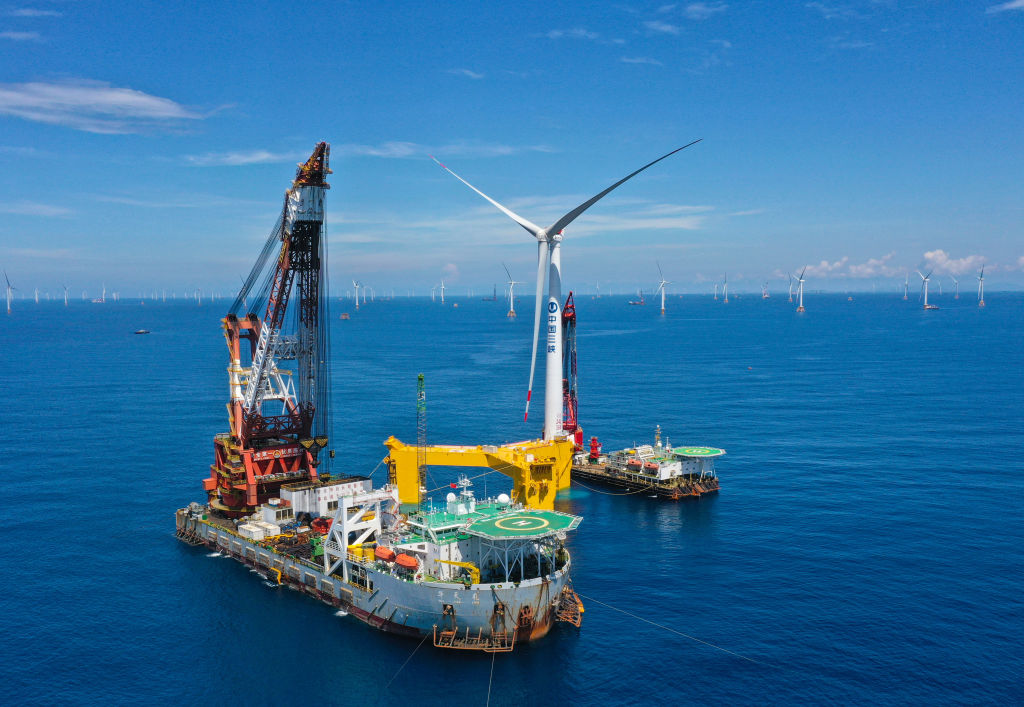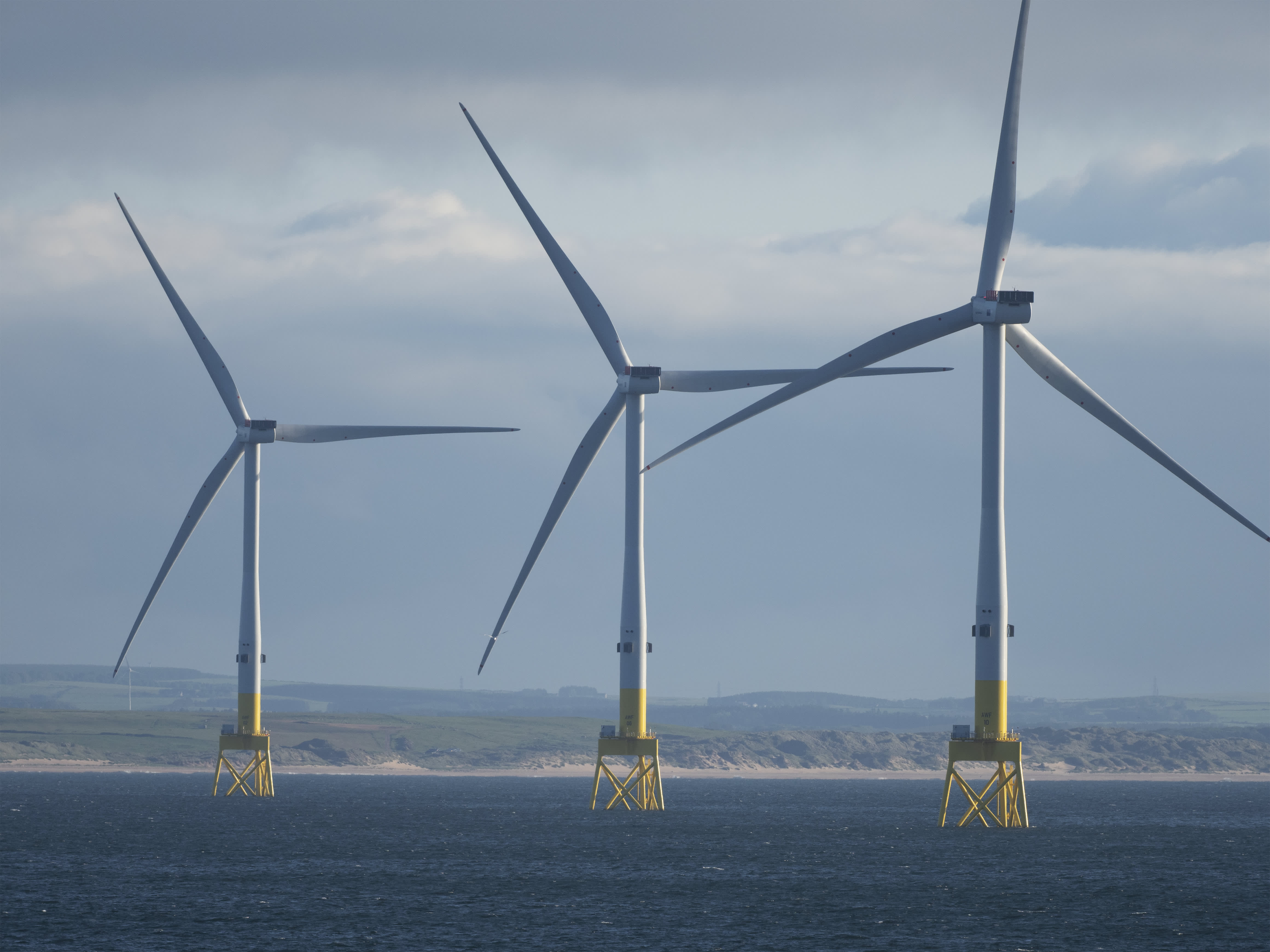Some warned that God will be angry if windmills mar the pristine horizon, and some claimed climate change either isn't real or isn't caused by human activity.
Others said climate change is real, warning that humankind has to stop burning fossil fuels for energy, and some apologized for the “conspiratorial” comments of those opposed to offshore wind.
All this concerned the prospect of a single electrical cable from half of just one offshore wind project approved off the coast of New Jersey, where thousands of wind turbines are likely to be built in the coming years.
More than 200 people attended a virtual public hearing Monday night on two companies' joint plan to bring a power line ashore in Ocean City. Danish wind developer Orsted and PSEG plan to connect their offshore wind farm project to the power grid in two spots: the former Oyster Creek nuclear power plant in Lacey Township, and the former B.L. England coal-fired power plant in Upper Township.
Get Philly local news, weather forecasts, sports and entertainment stories to your inbox. Sign up for NBC Philadelphia newsletters.
The hearing concerned a plan to bring the line bound for Upper Township ashore in Ocean City.
If the level of emotion was any indication, America's offshore wind energy industry will face strong headwinds onshore, particularly in New Jersey, where one of the most intense gold rushes anywhere in the nation for the right to lease stretches of ocean floor for wind projects is underway.
Late last month, six companies bid a combined $4.3 billion for the right to build wind energy projects on the ocean floor off New Jersey and New York in the U.S. government’s largest such auction in history. That's in addition to three offshore wind projects already approved by New Jersey utility regulators.
“Go up to the boardwalk, and look out at the ocean,” said Nathan Brightbill, a meeting participant, who like many of those who spoke during a Zoom meeting did not give his hometown. “God created that. God doesn't want us to put tons of stinking windmills out there. It's immoral.”
“These will be totally visible from our shoreline,” said Cathy Ingham. “If they were 50 miles offshore and not visible, it would be less of an impact. We the people should have had a vote on this project, and our vote would have been ‘no.’”
The purpose of the hearing was to take public comment on the diversion of less than an acre of publicly owned recreational and open space land to bring the cable ashore in the southern part of the barrier island.
But despite repeated pleas from meeting moderators to limit comments to that topic, few complied. Instead, many inveighed against the wind farm project, the offshore wind energy industry as a whole, and some questioned the reality or severity of climate change and sea level rise.
Opponents raised concerns about potential effects from electromagnetic fields they suspect will be emitted from the cable, as well as what they consider to be the risks to birds, fish and other animals.
And a recurring theme was the seeming futility of it all in the wake of New Jersey lawmakers enacting a measure last year stripping local communities of the ability to block power lines from offshore wind projects coming ashore in their towns.
“This is being rammed through and imposed on residents without our buy-in,” said Robin Shaffer. “These are the basic elements of why ‘not-in-my-backyard’ exists.”
“You're coming in and taking land that belongs to the people of Ocean City, and doing what you want with it,” added Tony Butch. “It's happening too fast, too quick.”
Opponents who spoke at Monday night's hearing far outnumbered supporters. But those who favor wind energy said it's an important way to stop burning fossil fuel for energy.
“Offshore wind is an important tool in fighting climate change,” said Patty Cronheim of the New Jersey League of Conservation Voters. “The biggest threat to our ocean is not turbines; it's climate change.”
“I've heard many claims tonight that are simply not true,” added Marcus Sibley, an official with the New Jersey NAACP. “Climate change is real; it's impacting everything.”
Many speakers were angry that their questions to representatives of Orsted and PSEG were not answered during Monday's meeting. The companies said they will respond to each question once a public comment period ends in a few weeks.
But one thing seemed certain, according to speaker Tim Flynn.
“This is not going to be the end of people protesting this project,” he said.
___
Follow Wayne Parry on Twitter at http://twitter.com/WayneParryAC



